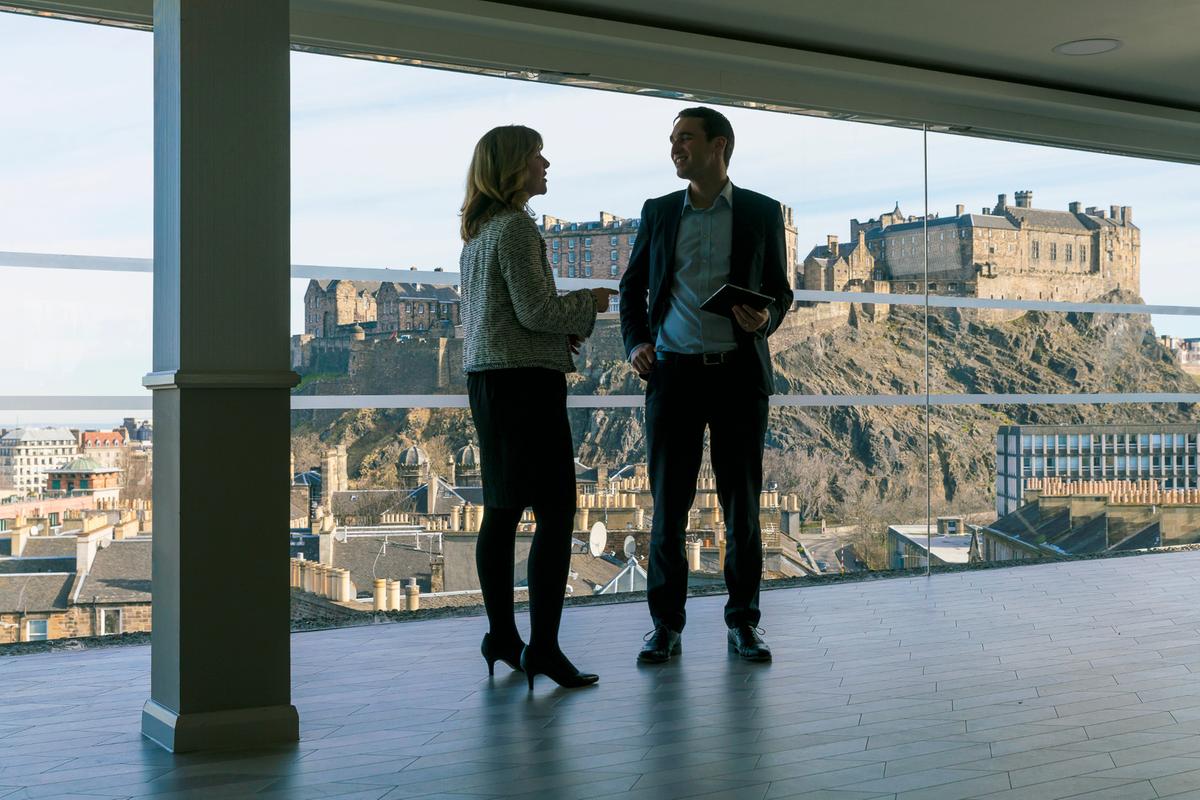Journey to Change projection on McEwan Hall, Edinburgh
ARTICLE PUBLISHED 26/01/2023
2023 is set to be an important year for Scotland, and the hope is that it is the first year without Covid-enforced business interruptions since 2019.
In this feature, we look to the year ahead to understand more about how requests for proposals (RFPs) across Germany and France are evolving and what is driving the decision-making process among event planners when it comes to choosing a destination.
Requests for proposals
RFPs are evolving and in 2023 they will contain more requests for information on security, according to Natascha Langhein, Senior Director Marketing & Sales, at Lieb Management in Germany. "After speaking to many event planners recently, one of the main reasons to choose a destination post-pandemic is safety and security," she notes.
"Companies are focusing more on avoiding all kinds of security threats and put the health and wellbeing of their colleagues in the spotlight. Studying of crime statistics, evaluating possible terror threats as well as environmental threats have increased in recent years."
Langhein noted that RFPs are coming from both corporate planners and intermediaries but lead times are generally 25% shorter than before the pandemic. "We are also receiving more RFPs from freelance planners as many became self-employed during the pandemic," she adds.
"We historically receive many requests from former familiarisation trip and event participants. Nothing beats the personal experience with a destination, which also builds product knowledge and creates emotional bonds."
A similar picture exists in France. According to Marine Kerhervé, MICE Account Manager at Interface Tourism, there has been a notable decrease in terms of incentive enquiries as organisations attempt to justify the impact of an incentive project. "Corporate social responsibility (CSR) is always more important for event organisers; they are very interested in knowing CSR policies of the venues and looking for responsible activities," she says.
"A recurring trend over the last few years is of course the originality; they are looking for unseen activities and venues to surprise the clients, but perhaps in a more authentic way."
Kerhervé adds that RFPs are still coming from intermediaries, most commonly MICE agencies. "One thing that has changed is that we are often contacted by several agencies for the same project.". "Talking with them, it's a real trend. Companies send RFPs to a lot of agencies at the same time to challenge them."
Kerhervé notes that originality, CSR policy and durability, and political stability are the overarching top trends.
Event planner view
When looking for a destination to host an event, an event planner's top requirements are changing, with a focus on personalisation and experience becoming a greater priority.
Jessica Reiß, project manager at ad-house in Germany, says corporate identity must be reflected in the destination. "First, you should tailor your research to the brand of the project or client. The corporate identity should be reflected in the location," she says, before adding that transport is also key. She notes: "Requirements that are becoming more relevant are locations which offer the most sustainable and fastest travel connection. We also look for a location that offers extraordinary experiences, as well as accommodation and good restaurants."
Nina Tagliaferri, Senior Event and Partner Marketing Manager at KINEXON in Germany agrees that accessibility will also be a key factor in 2023. "It is very important for us that international attendees can reach the venue easily," she says. "People have less time when it comes to events, therefore an easily accessible location is a must."
She also says that trust in the destination and its people are equally essential when it comes to event planning.
On the importance of a host destination having key links to a planner's sector and the capacity to build relationships with local organisations, Tagliaferri notes it is important, particularly in the post-Covid era. "It is a huge plus if the host destination has key links to our sector," she says. "Building relationships with local organisations and businesses is something each attendee can benefit from. After all the virtual events during the Covid years, people really appreciate meeting in person. This is something you cannot buy if you choose the wrong destination."
Willy Renard, Project Manager Events & Incentives at VATEA Tourisme d'Affaires & Événements says that his main requirements when looking for a destination are accessibility, infrastructure (hotels and venues) and political stability. "We look for destinations that offer new experiences for participants, who are always looking for more authenticity," he says. "In addition, CSR approaches are increasingly integrated into our clients' event strategies. A destination offering all these elements has a real advantage."
Rania Kahla, Project Manager at Groupe S'Cape adds that having strong links with the organiser's sector or field is a vital part of the decision-making process. "Depending on what is requested and the context of the project, we may have requests for visits or team building activities related to the sector of the client, such as a visit to a factory, manufacturing, expert intervention, or exchange programmes. We integrate those activities with moments of relaxation and we personalise the projects."


